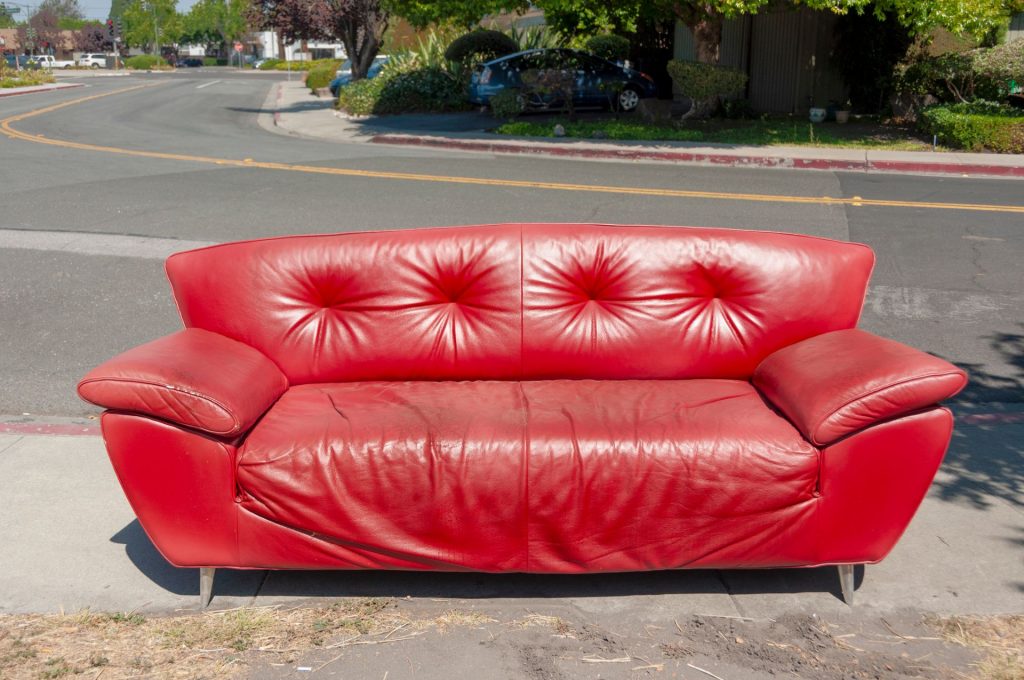What to do with a tenant’s abandoned belongings?

It’s a common problem that landlords face: the tenant has already left, but they also left behind personal possessions.
Do you throw them out? Can you keep them for yourself? Are you legally allowed to sell them?
To answer this prickly Texas property management question, we prepared this convenient guide for you:
Prevent this from happening in the future
Hindsight is always 20/20, but now might be a good time to add an “abandonment clause” to your lease contracts. It should cover the steps you’ll take when a tenant vacates their unit. For instance, you may stipulate that left-behind belongings will be stored for 30 days, after which they will be disposed of. Adding this clause also protects you from legal action when you get rid of their belongings after the claiming period.
What can you toss out?
If you’re lucky, most of the tenant’s abandoned stuff will turn out to be junk. This includes things like old magazines, broken furniture, old clothes, and the like. As long as the items do not seem valuable, you can toss them out without much worry. Remember that cleanup and garbage disposal can be deducted from the tenant’s deposit. Be sure to include associated receipts for the cleanup when you turn over the remaining funds to the tenant.
What can’t you toss out?
But what if your tenant leaves behind an entertainment system or a vehicle? Unfortunately, Texas laws do not provide explicit rules for what to do with abandoned property. However, there are steps you can take to protect yourself from legal liability:
-
Take inventory
Doing an inventory of left-behind possessions makes it easier to turn them over if the tenant returns. Have an objective third-party witness (e.g., a neighbor) witness the inventory; this protects you from claims that you stole or destroyed any of the valuables. It’s also a good idea to take a photo to document the quantity and condition of the items. Do not open locked trunks or suitcases – simply note the number of unopened containers in your inventory. -
Store the belongings
The location should be secure to prevent theft or damage. You may safekeep items in the unit for now or rent a storage space off-site. Again, the storage fees may be deducted from the tenant’s deposit. -
Set a deadline
The Texas Property Code says that you may dispose of abandoned properties after 60 days, but most landlords will set a 30-day cap. You want to give the tenant enough time to reclaim their property, but you’ll also want to minimize storage costs. A shorter deadline is also better if you’re storing items in the unit but have new tenants lined up already. -
Notify the tenant
The next step is to contact the tenant and request them to pick up their abandoned items. If these are stored off-site, give them the address and meet them there to facilitate the turnover. Be sure to give them a copy of the inventory and have them sign it to finalize the transfer.
What if the tenant doesn’t reclaim their belongings?
If the tenant failed to show up within the stipulated safekeeping period, you have a few options for how to dispose of the properties:
-
Disposal
As previously mentioned, the Texas Property Code deems properties abandoned if they are left unclaimed after 60 days in storage. Hence, you are free to destroy them, turn them over for garbage disposal, or donate them to charity. -
Public sale
Yes, Texas landlords can sell off abandoned property. This option is especially attractive if the tenant owes money that their deposit doesn’t fully cover. To stay above board, however, sell the properties at a public sale. You should also give the tenant one final notice and publicize the sale through a newspaper. -
Return monies
This includes the deposit, less the costs of storing the possessions.If the properties remain unclaimed 30 days after you mail a relative or executor to collect the belongings, you are free to dispose of the properties as you see fit.
Got more questions about property management in College Station, TX? Just give Berkshire Hathaway HomeServices Caliber Realty a call at 979.694.8844 or send an email to sales(at)bhhscaliber(dotted)com.


